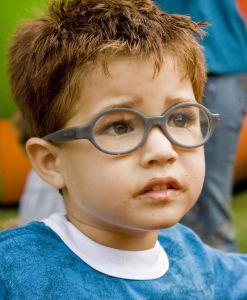 We catch children hiding the truth from the time they are quite young. It might be a child who has just scribbled on the wall, who says “no” when you ask her if she did it. It might be a child who points to his brother and says, “He did it!” when you ask him if he spilled the juice. It might be a child who denies taking money from your wallet when you know he helped himself to the $10 that was there. Children will tell you they finished their homework, cleaned their room or brushed their teeth when in fact they did not.
We catch children hiding the truth from the time they are quite young. It might be a child who has just scribbled on the wall, who says “no” when you ask her if she did it. It might be a child who points to his brother and says, “He did it!” when you ask him if he spilled the juice. It might be a child who denies taking money from your wallet when you know he helped himself to the $10 that was there. Children will tell you they finished their homework, cleaned their room or brushed their teeth when in fact they did not.
Lying or keeping secrets is a defensive instinct that protects the child from too much vulnerability. Since a child’s greatest need is to maintain closeness and connection with his parents, he has to avoid anything that would create separation.
Separation does not only involve being physically apart, but also having a sense of being different, being less pleasing or significant, not belonging, being unloved or being misunderstood. Sometimes telling the truth sets you up for all of these different experiences of separation, and not only children but adults, too, instinctively avoid these experiences.
Potentially, when children reach the age of approximately 6, they want their parents to know and understand them. This need for psychological intimacy drives them to share their thoughts, feelings and secrets with their parents, making it difficult for them to hide the truth. Without even knowing why, children instinctively come to their parents to tell them what’s on their minds and in their hearts. This includes telling their parents about the trouble they got into!
However, long before this age, this instinct can become skewed.
Children are very vulnerable, and sometimes this vulnerability can become too overwhelming. If a child feels that telling the truth or sharing his secret with his parents might hurt him, then he will have to make the sacrifice of not allowing the relationship to deepen. The vulnerable feelings of embarrassment, shame or guilt will prevent him from spontaneously blurting out the truth.
If a child senses his value will be reduced in the eyes of his parents — that they will be angry, disappointed or ashamed of him, or that he is too difficult or too much to handle — he will have to hide aspects of himself from them.
In order to stay inside the relationship, the child is driven to keep secrets to prevent these painful experiences of separation. The thought process that follows: “What my parents don’t know can’t hurt me.”
We need to make it safe for our children to tell us the truth. We need to extend a generous invitation to them to bring all of who they are into the relationship. They need to feel safe to tell us what they are thinking, feeling and experiencing. They need to see that we can handle these things without losing our temper or reacting in a way that alarms or shames them.
We want to make it easy for our children to be dependent on us, so that in any situation, they naturally turn to us to seek our help and guidance. When we see a child is not truthful, it’s our job to convey that we know the truth and we are here to help him make amends.
By trusting in our children’s good intentions, we can be on their side and draw out their mixed feelings about a given situation. We need to make it safe for them to tell their side of the story and then identify the right moment to draw forth other sides of the story and lead them to the appropriate outcome.
Children want to tell us the truth. They want to be good and do the right thing. It’s our role to create the right context in which they can sense that what we know about them can’t hurt them, and that nothing can divide us.
